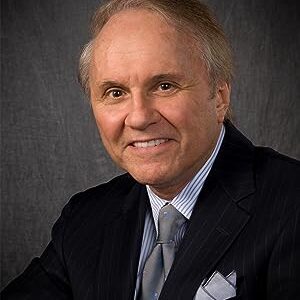The Ravens-49ers 2013 Super Bowl was replete with lessons on the difficulties of managing success. We never mention the underlying powerful emotion of guilt when it comes to getting to the top, but coach John Harbaugh of the champion Ravens provided a vivid example. Poignantly he told us about defeating his brother, Jim, the 49ers’ head coach, “I never thought you could feel 100 percent elation and 100 percent devastation at the same time.”
Sympathy for an opponent or bypassing a friend to get to the top can cause subtle retreats and settling for less. It’s easy to give in to the urge to let your neighbor/your brother go first. The loss of just the slightest bit of “victory hunger” – starving for a win – can be all it takes to allow a step back, especially for human beings. (We wonder if John’s brother, Jim, subtly let his older brother outcoach him?) This was one reason the great tennis champion Jimmy Connors would never let himself get close to other players. He knew he couldn’t allow himself to feel sorry for them.
Managing guilt and failure
San Francisco quarterback Colin Kaepernick reveals another side to managing guilt – personal failure. Obviously his own worst critic, he blamed himself for the Super Bowl loss stating, “I made too many mistakes for us to win.” He was referring to his badly thrown second-quarter interception and to his three straight incompletions from the Raven five-yard line at the end of the game. He went on about his perceived errors, “They will stay with me the rest of my life” – which reveals just how harsh we can be over our imperfections. Many a person has failed to overcome their failures. As cornerbacks and relief pitchers in baseball know, “You better have a short memory.” Find a way to accept your failures and move on.
Then we had the missed holding call – by both the back judge and the side judge – on the last 49ers offensive play at the five-yard line, the third of Kaepernick’s incompletions. Replays clearly showed that cornerback Jimmy Smith had his outside arm around receiver Michael Crabtree – and had held his jersey. Former defensive back guru Brother Oliver – one of the greatest defensive coordinators in college football history – commented in a radio interview that it was unquestionably holding, that Smith had simply held the receiver “way too long.” (Perhaps not to appear too harsh Oliver went on to say that the play didn’t determine the outcome but in truth it did – it was the last 49ers pass into the end zone. Everything was riding on that play.)
Football analyst and former defensive back Herm Edwards, the former Jets coach, waived off the hold and said that you don’t get the call at that point in the game, and it was the Super Bowl. But sometimes a referee will step up and make that call – in a big game. Recall just such a final play in the 2002 national championship game between Miami and Ohio State when the referee called holding on a Miami defensive back in the end zone, an infraction which was no more blatant than Smith’s hold. Despite the referees’ usual insistence that they aren’t the ones who make the difference in the game, this referee did because he thought it was the right call, and Ohio State went on to score. Had he left the flag in his pocket, Miami wins.
Fear of criticism
Imagine if either of the two Super Bowl referees had made that holding call against Baltimore. He would have been flooded with criticism and faced a mountain of unjustified guilt, and found himself at the center of controversy. And the replay would have backed him up showing Smith holding Crabtree’s jersey – and the referee would eventually have been admired for his courage. Leaders sometimes have to stand up to make unpopular decisions.
I’m just saying that guilt entered the picture, and a referee passed on standing up. Edwards’ take means there’s an unwritten rule that – toward the end of a game – you can hold longer and you can even grab a jersey. So fear of guilt changes the rules. And as a result peer pressure takes the flag out of the hands of even the finest referees.
Taking your best shot
Then we have 49ers offensive coordinator Greg Roman who called for the pistol formation just once in the final four plays after the Ravens had difficulty all day stopping it. Did he not go with the strategy that got him there? Did he fail to take his best shot? Was he like the refs? One thing’s for sure, too often in crucial circumstances people miss taking their best shot.
If you want to know what motivates the human race you can fill in two of the first blanks with “secret guilt” and “fear of success,” and you wouldn’t be too far off too often.
